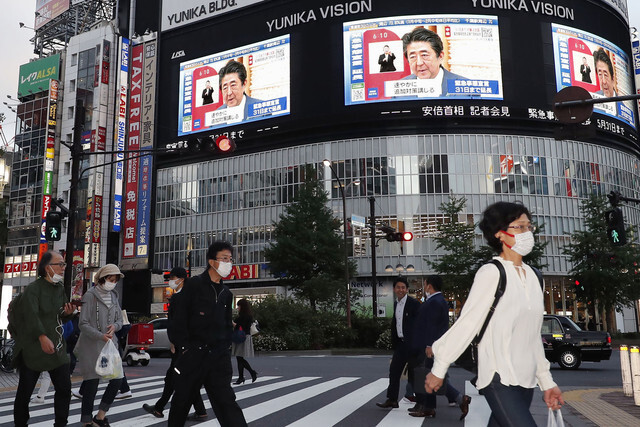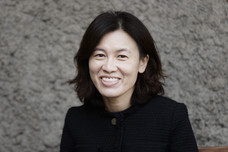hankyoreh
Links to other country sites 다른 나라 사이트 링크
[Column] Japan needs to acknowledge S. Korea’s disease control efforts

In his book “ Eizoku haisenron” (The Theory of Permanent Defeat),” the Japanese political scientist Satoshi Shirai explains that Japan is suffering a “permanent defeat” due to its repudiation of its defeat in World War II. After the end of WWII in 1945, Japan was utterly subordinated as a Cold War base for the US in East Asia; in exchange for this, it avoided apologizing or taking responsibility vis-à-vis its Asian neighbors that had suffered from colonization and invasion, including Korea and China. Shirai’s argument is that “permanent defeat” persists as Japan has remained unable to escape its subordination to the US or the “irresponsibility system” created when its emperor and leadership sidestepped responsibility for their war of aggression.
Shirai wrote the book to trace the origins of the irresponsibility demonstrated by the Japanese government in the wake of the Fukushima Nuclear Power Plant disaster in 2011 -- but the same shadows also hover over the Shinzo Abe administration’s response to the novel coronavirus pandemic. The administration now finds itself mired in controversy over its comprehensive disaster control failures, facing criticisms for having effectively allowed the infection to spread with its unfathomably passive approach to testing, along with a furor over the dire situation with face masks, which has resulted in the term ”Abe-nomics” being replaced with the new coinage “Abe-no mask.”
Yet the Abe administration has focused its energies on slighting the South Korean disease control model, claiming that “testing like South Korea is doing would lead to a healthcare collapse” or that “South Korea’s drive-thru testing has a low accuracy rate.” For the first time on Apr. 29, Abe indicated that he wanted to “cooperate with South Korea on the coronavirus infection response,” but he remains reluctant to ask South Korea for its cooperation.
In response to this, the philosopher Tatsuru Uchida said, “The Abe administration’s core support base is people who despise Korea and China, so they view it as an indignity to learn from Korea or China.”
“That’s why the administration is staking everything on presenting it as though they’re implementing a unique set of Japanese infection measures,” he added.
“What they need is the strength to reflect on past experience and the imagination to foresee the future, but Japan today is focusing so much on avoiding the immediate crisis that they’re turning into the proverbial [see no evil, hear no evil, speak no evil] monkeys,” he said.
While they have been put off amid the coronavirus virus, the two sides still face the issues of compensation to victims of forced labor mobilization and the removal of export restrictions. Following a South Korean Supreme Court judgment in November 2018 ruling that Japanese companies implicated in war crimes had to compensate survivors of forced labor mobilization, the Abe administration imposed retaliatory export controls, denouncing South Korea for “violating international law” in the form of the two sides’ Claims Settlement Agreement.
After barring Japanese companies from compensating victims, it threatened even more severe retaliation against South Korea if the assets seized from the companies by victims were sold off and converted into cash. To avoid taking responsibility for historical issues, the Abe administration rallied its supporters under the “anti-Korea” banner; in the case of the coronavirus crisis, it has deliberately disregarded South Korea’s disease control performance.
Now, a new set of circumstances has been taking shape with the South Korean general election on Apr. 15 and changing sentiments within Japan in response to the Abe administration’s bungled coronavirus response. The voter sentiments in the general election passed a stern judgment on acts of “Japan-friendliness.” Na Kyung-won, who had been seen as the most representative of pro-Japanese politicians, lost her seat, while the newly elected lawmakers included judge Lee Su-jin, who previously raised issues over the Supreme Court’s delay in ruling on the forced labor issue under former Chief Justice Yang Sung-tae, and Yoon Mee-hyang, the former chairperson of the group Justice for the Comfort Women and a living symbol of the resolution of the comfort women issue.
The Abe administration tried to force the Moon Jae-in administration to capitulate with its export controls, while anticipating growing calls for a suitable compromise from pro-Japanese media, politicians, and scholars within South Korea. But the South Korean public repudiated this with its general election votes, sending a clear message calling for a principled approach to South Korea-Japan diplomacy.
Abe’s approval ratings fall after his failed response to COVID-19Opinion polls in Japan have shown a steep drop in the Abe administration’s approval ratings due to the failed coronavirus response, with 68% of respondents saying they felt “uneasy” about healthcare and testing. Reading the signals from the Abe administration, the same media that was disregarding South Korea before are now publishing reports calling Japan’s response the “’analog’ to South Korea’s artificial intelligence” and insisting that the government “has so much to learn about countermeasures that it ought to be bowing its head and saying ‘at your service’ to South Korea.”
Amid these changes, Seoul National University professor Nam Ki-jeong predicted that “the strategy adopted by Abe to get through the G2 era through the US-Japan alliance will need to be revised, and the adjustment of relations with South Korea will emerge as a diplomatic task for Japan in the post-coronavirus era.” In his view, there is a “new space appearing that had vanished from our diplomacy with Japan.”
With the waves of a new US-China Cold War descending, the need for cooperation and coordination between Seoul and Tokyo has been growing. The South Korean government needs to apply its past “two-track” principle of responding resolutely to Japan on historical and territorial issues while strengthening cooperation in areas related to the economy, society, and culture as it surveys the new environment and works to achieve a diplomatic breakthrough. Cooperation through local governments and the private sector is also worth examining. Understanding and cooperation at the private level will need to be expanded with an eye toward the post-Abe era.
The Abe administration needs to recognize that facing up to its historical responsibility by removing its export controls and providing the apology and compensation that forced labor mobilization survivors have been waiting over 70 years for is the first step for Japan to extricate itself from its “permanent defeat.” One signal of that would be for it to humbly acknowledge South Korea’s disease control achievements and reach out.

By Park Min-hee, editorial writer
Please direct comments or questions to [english@hani.co.kr]

Editorial・opinion
![[Editorial] Penalties for airing allegations against Korea’s first lady endanger free press [Editorial] Penalties for airing allegations against Korea’s first lady endanger free press](https://flexible.img.hani.co.kr/flexible/normal/500/300/imgdb/original/2024/0502/1817146398095106.jpg) [Editorial] Penalties for airing allegations against Korea’s first lady endanger free press
[Editorial] Penalties for airing allegations against Korea’s first lady endanger free press![[Editorial] Yoon must halt procurement of SM-3 interceptor missiles [Editorial] Yoon must halt procurement of SM-3 interceptor missiles](https://flexible.img.hani.co.kr/flexible/normal/500/300/imgdb/child/2024/0501/17145495551605_1717145495195344.jpg) [Editorial] Yoon must halt procurement of SM-3 interceptor missiles
[Editorial] Yoon must halt procurement of SM-3 interceptor missiles- [Guest essay] Maybe Korea’s rapid population decline is an opportunity, not a crisis
- [Column] Can Yoon steer diplomacy with Russia, China back on track?
- [Column] Season 2 of special prosecutor probe may be coming to Korea soon
- [Column] Park Geun-hye déjà vu in Yoon Suk-yeol
- [Editorial] New weight of N. Korea’s nuclear threats makes dialogue all the more urgent
- [Guest essay] The real reason Korea’s new right wants to dub Rhee a founding father
- [Column] ‘Choson’: Is it time we start referring to N. Korea in its own terms?
- [Editorial] Japan’s rewriting of history with Korea has gone too far
Most viewed articles
- 11 in 3 S. Korean security experts support nuclear armament, CSIS finds
- 2Months and months of overdue wages are pushing migrant workers in Korea into debt
- 3Bills for Itaewon crush inquiry, special counsel probe into Marine’s death pass National Assembly
- 4Trump asks why US would defend Korea, hints at hiking Seoul’s defense cost burden
- 5[Reporter’s notebook] In Min’s world, she’s the artist — and NewJeans is her art
- 6[Editorial] Penalties for airing allegations against Korea’s first lady endanger free press
- 7S. Korea discusses participation in defense development with AUKUS alliance
- 8[Column] Can Yoon steer diplomacy with Russia, China back on track?
- 9Vietnamese war victims speak of sexual violence by S. Korean troops for the first time
- 1060% of young Koreans see no need to have kids after marriage